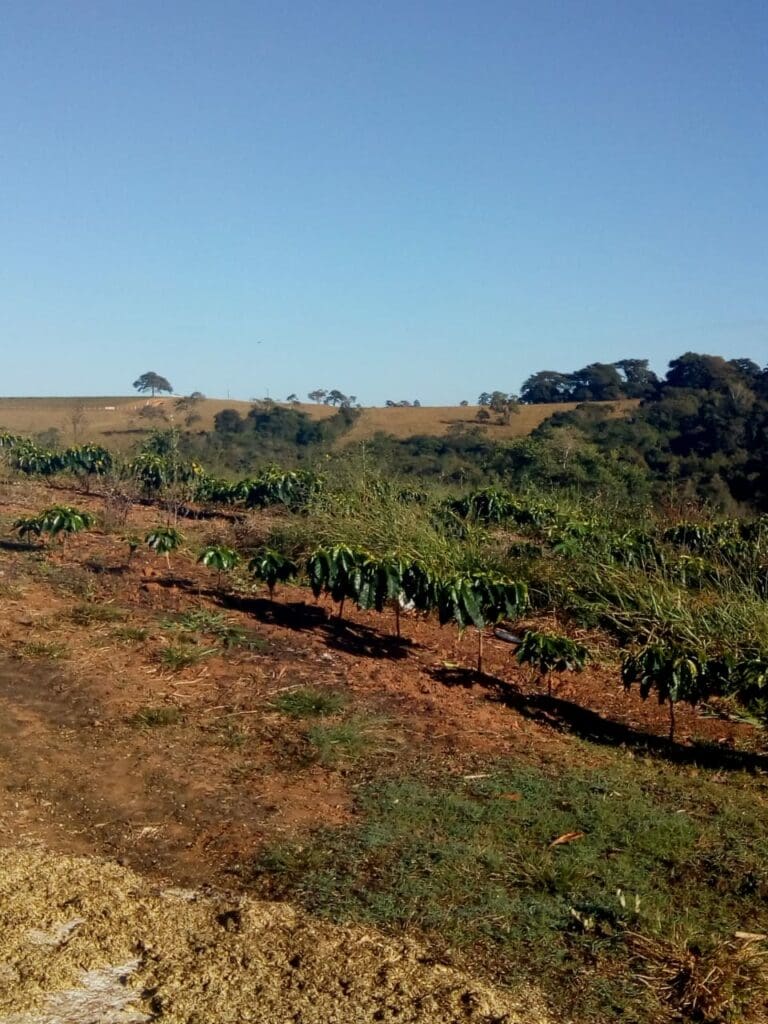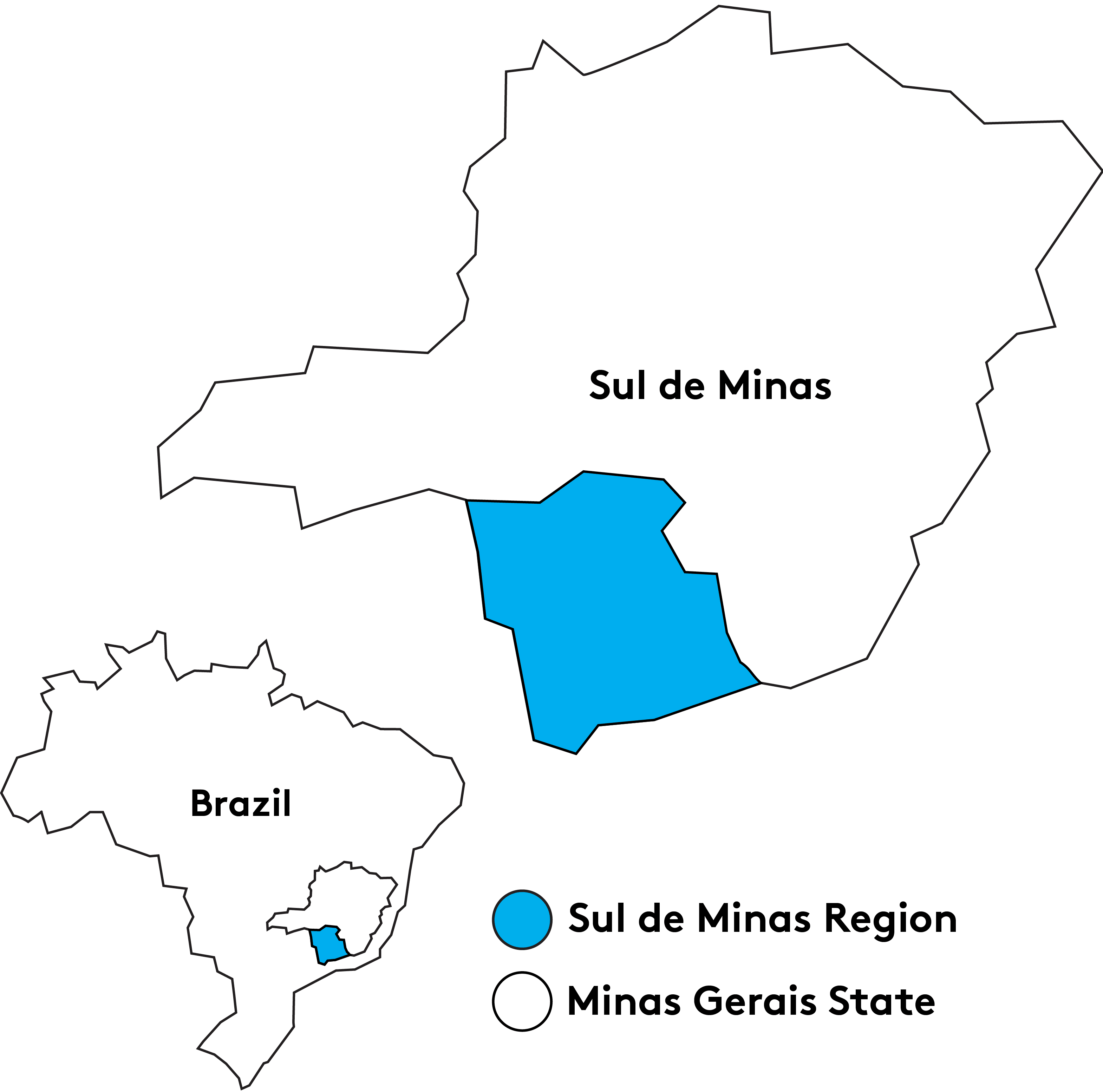Tiago Barbosa is a second generation coffee producer in the Sul de Minas region of Brazil. He grew up accompanying his parents during their work raising cattle and growing coffee on a farm called Moenda. Tiago eventually took over the family business in 1999, working on the farm with his wife Graciele Ribeiro Barbosa.
Over the years their business and production have grown. In addition to the Moenda farm, they also have Esperança, Santa Cruz, and Calogi farms with a focus on high quality coffees. This coffee comes from Fazenda Santa Cruz, which covers a total of 116 hectares in the city of Santo Antônio do Amparo.
This lot of Red Catuai coffee underwent Natural processing. Catuai was developed by the Instituto Agronomico (IAC) of Sao Paulo State in Campinas, Brazil by crossing Mundo Novo and Caturra varieties. Catuai coffees are cultivated widely across Brazil, and are known for their high productivity potential.


